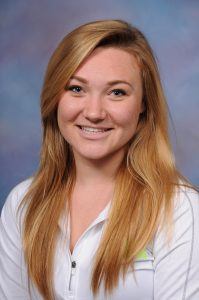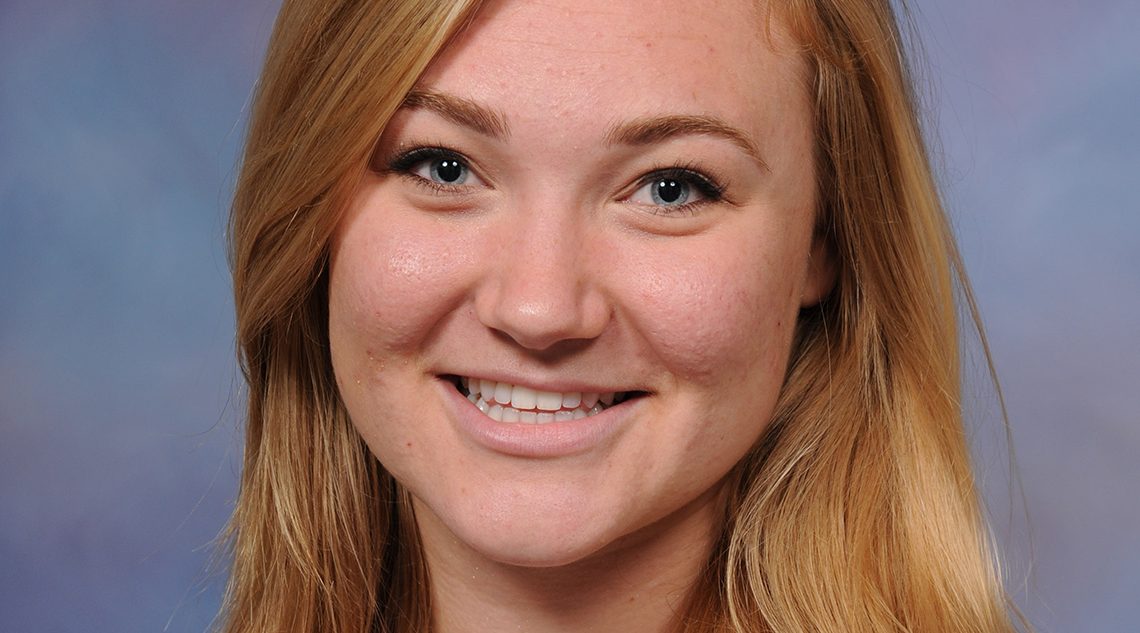
Sierra Clark took two years to find a career path, but now she has combined her love of science and people in Union’s new pre-genetic counseling major. Photo by Steve Nazario.
At Union College, more specialized degrees and emphases means more ways students are better prepared for graduate school and a career. For Sierra Clark, who arrived at Union in 2013, finding a major proved to be a struggle until she found a fit in the new pre-genetic counseling program—a program designed to prepare students for a master’s program and a career helping patients make tough healthcare decisions.
As she took general education courses during her first two years of college, Clark couldn’t decide on a career path. But when she heard about the pre-genetic counseling program, she was intrigued. “Dr. Rose gave me an overview of the major, and he sent me some additional literature to read as well,” Clark said. “I arranged a meeting with him when school started in the fall to talk about my fit for the major.” After all was said and done, Clark declared her major.
According the the Bureau of Labor Statistics, genetic counselors help patients understand and assess individual and family risks for a variety of inherited conditions, including genetic disorders and birth defects. Their research indicates that jobs for genetic counselors will grow by 29 percent over the next eight years—well above the average. Dr. Frankie Rose, who has advised Union’s medical pre-professional students for the past six years, has been watching the broader fields of genetics and believes this was a good time for Union to begin offering the major.
Rose earned his doctoral degree studying genetics and called on some of his former colleagues from graduate school to help him create the major at Union—which prepares students to earn a master’s degree in genetic counseling. “The pre-genetic counseling track offers the best of both worlds for students who are interested in a career in the medical field and who enjoy educating patients,” Dr. Rose explained. “By choosing this track students will be equipped with the necessary knowledge and experience to pursue a career as a genetic counselor.”
The pre-genetic counseling major shares many requirements with the biomedical science major, such as general chemistry, general biology, biochemistry and organic chemistry. “Pre-genetic counseling majors focus on the microscopic biology of humans, specifically their genetics,” Dr. Rose explained. “Along with gaining a thorough understanding about genetics, pre-genetic counseling majors will be prepared to counsel patients concerning inherited disorders, assess risk factors, and serve as patient advocates.”
As with the biomedical science major, students can take classes in a supporting area—possibly an unrelated area of interest, or one that could be helpful in the genetic counseling career. “I’m pursuing a psychology minor, which is highly recommended with this major because counseling sessions with patients involve dealing with some pretty heavy topics,” Clark explained.
She feels her search for a calling has paid off. “Genetic counseling is a good fit for those who love science and have good people skills,” Clark said. “But, as I learned from Dr. Rose, the best thing a person can do for themselves is do as much shadowing as possible before deciding on any major.”
—
Megan Wehling is a 2015 Union College graduate.








